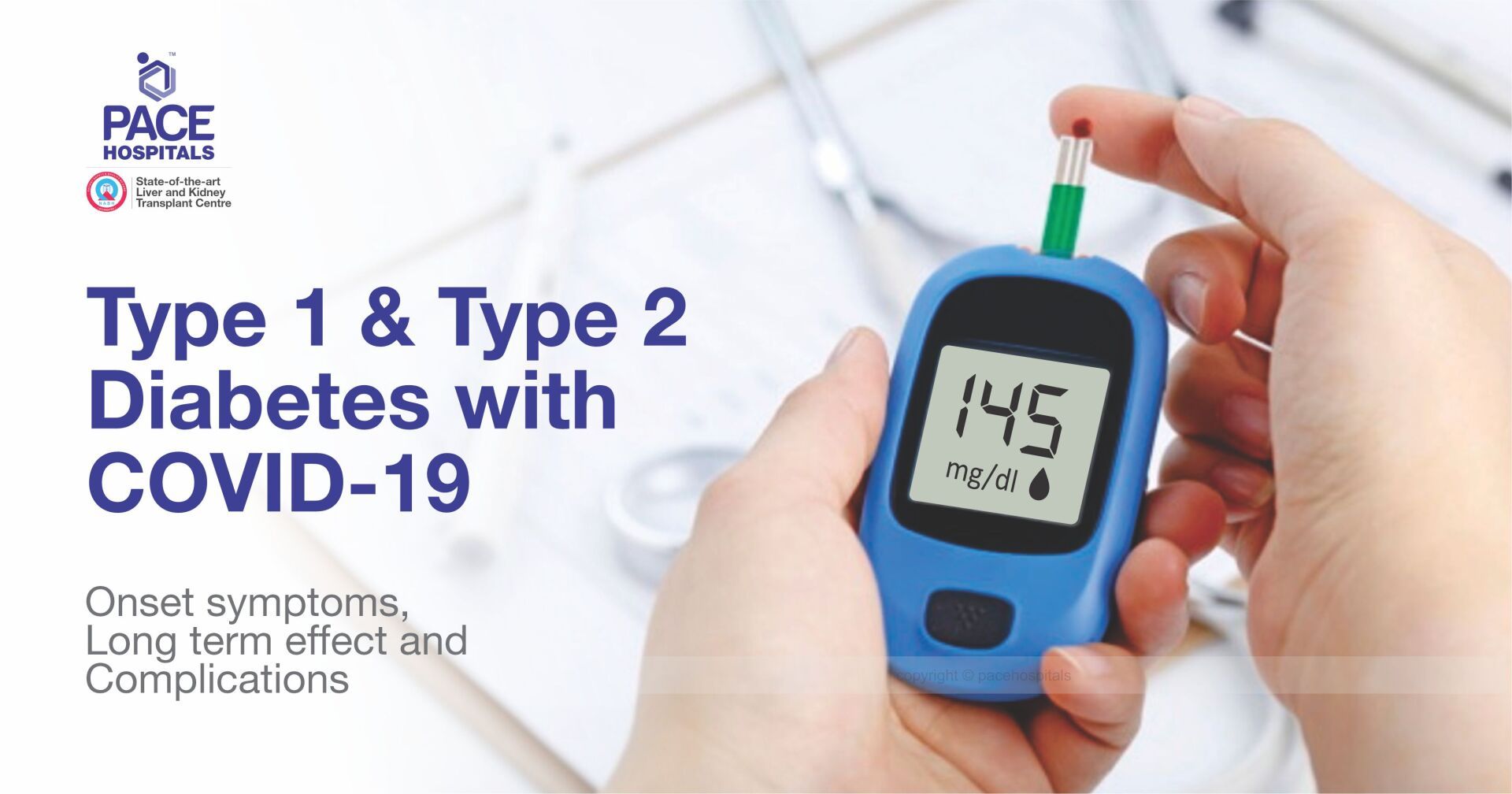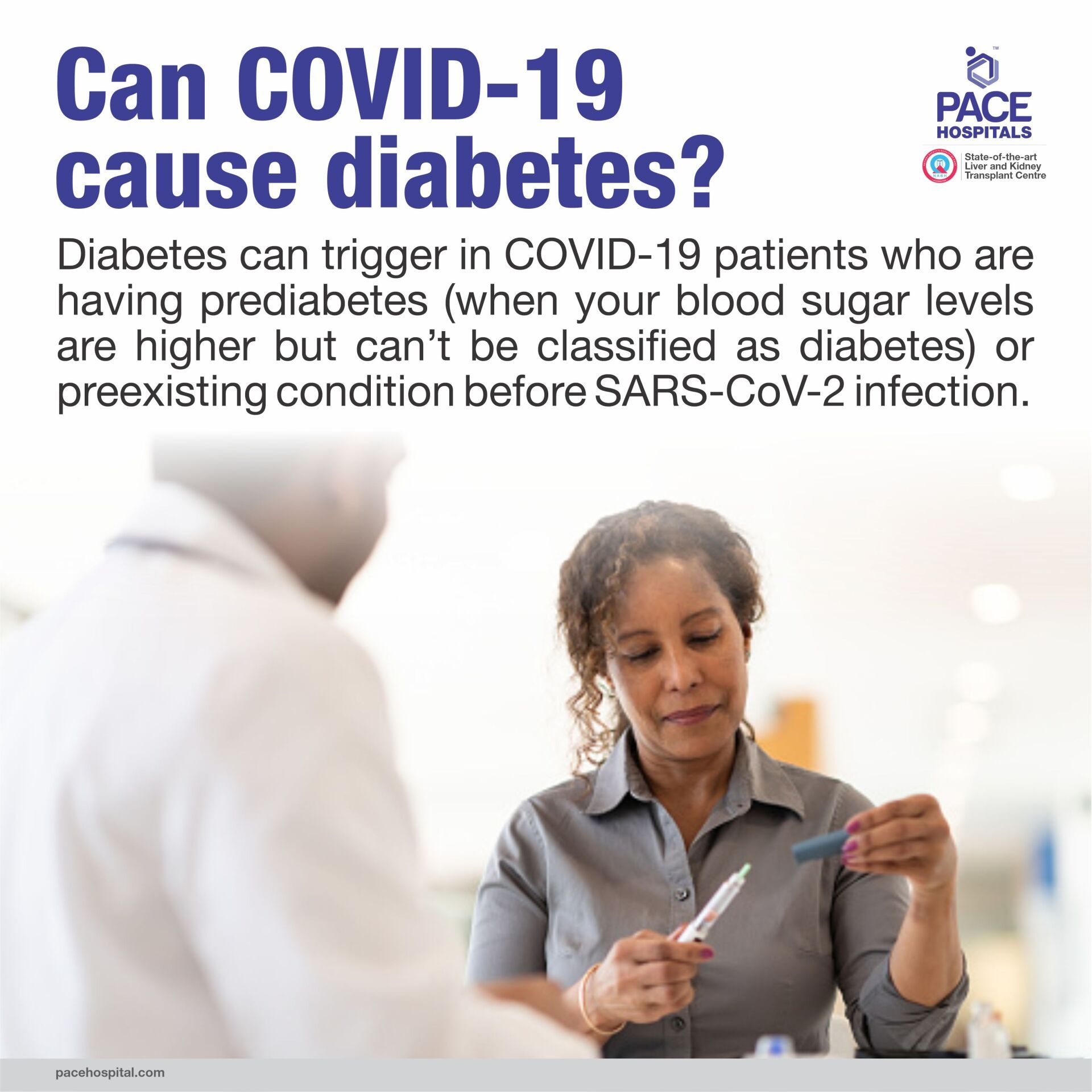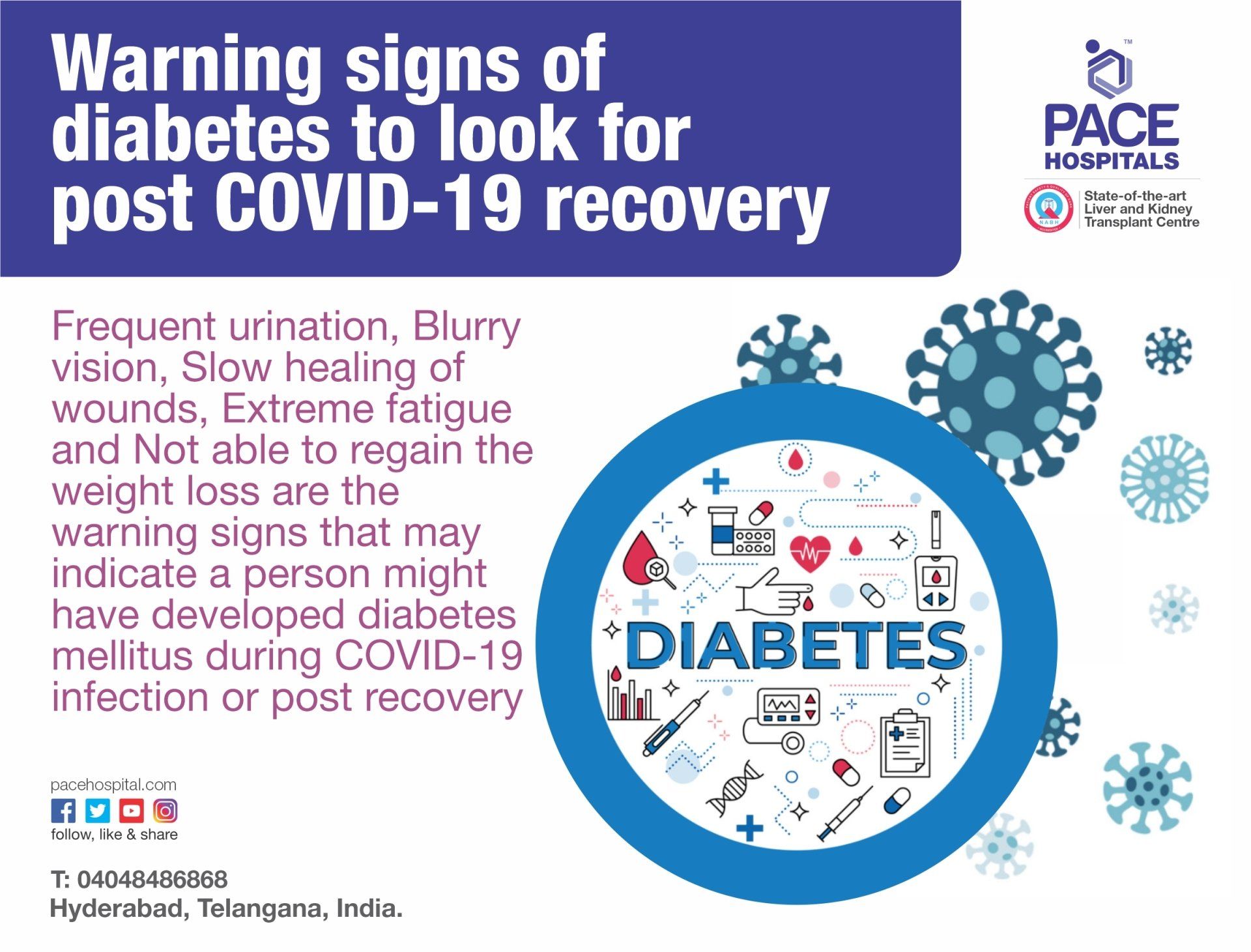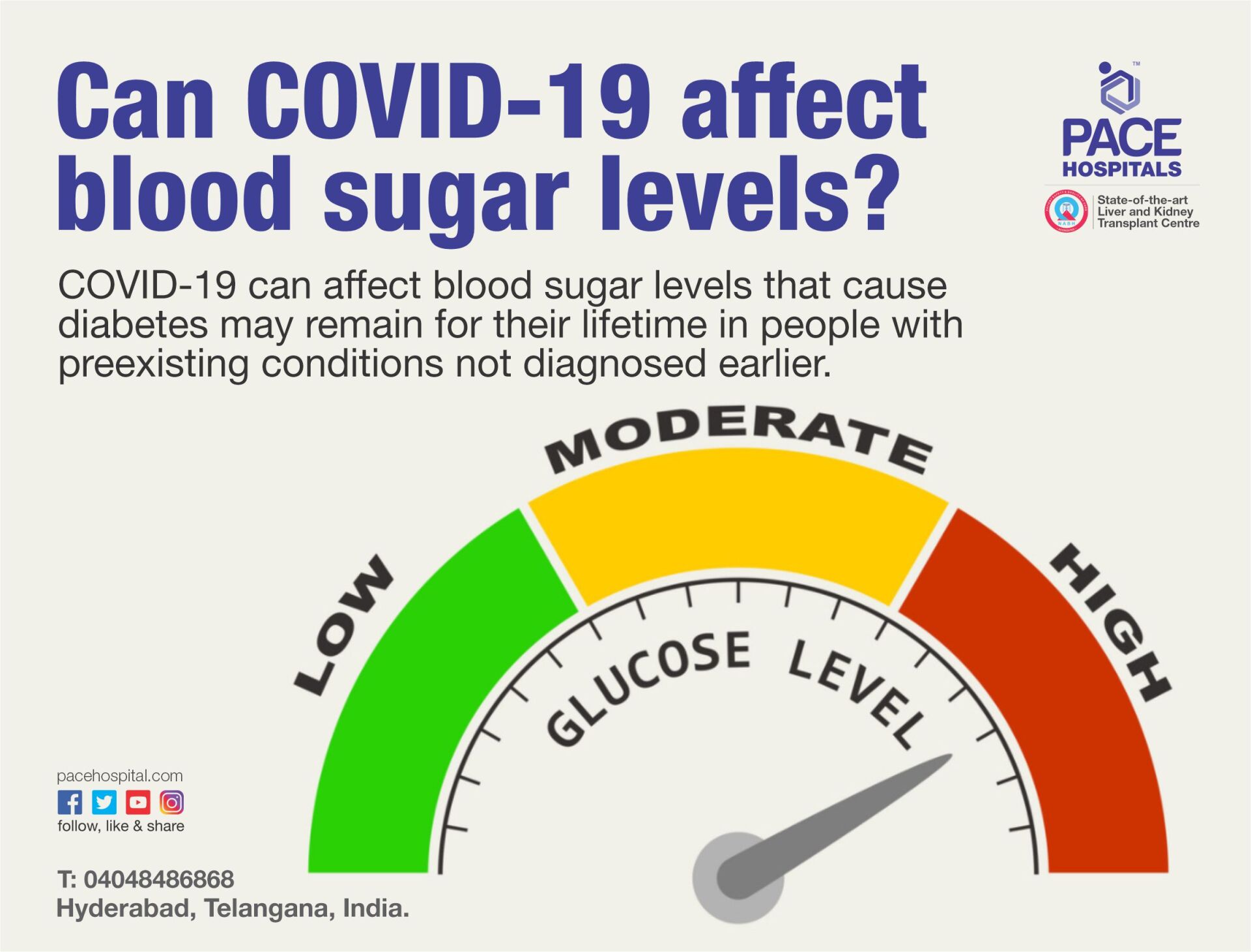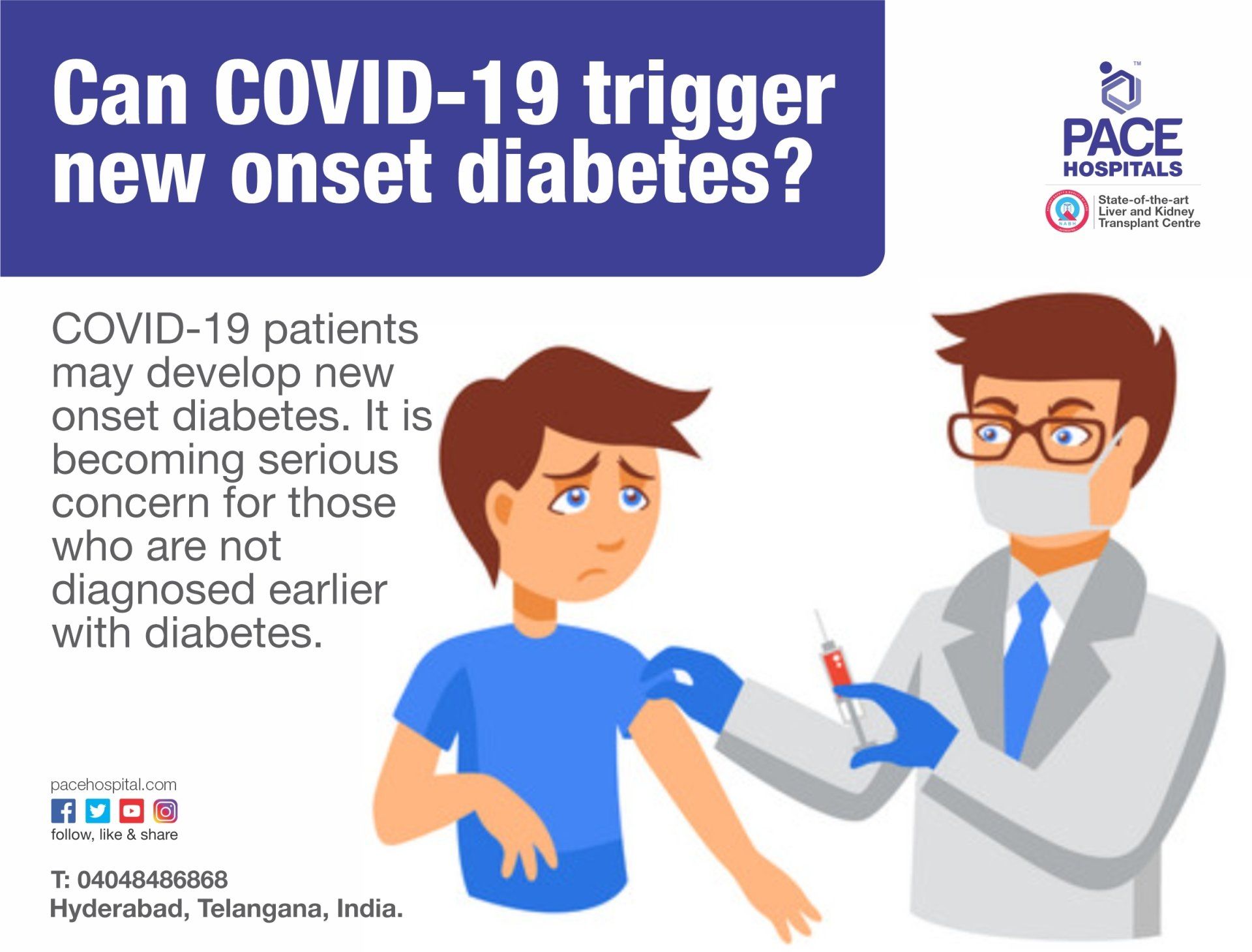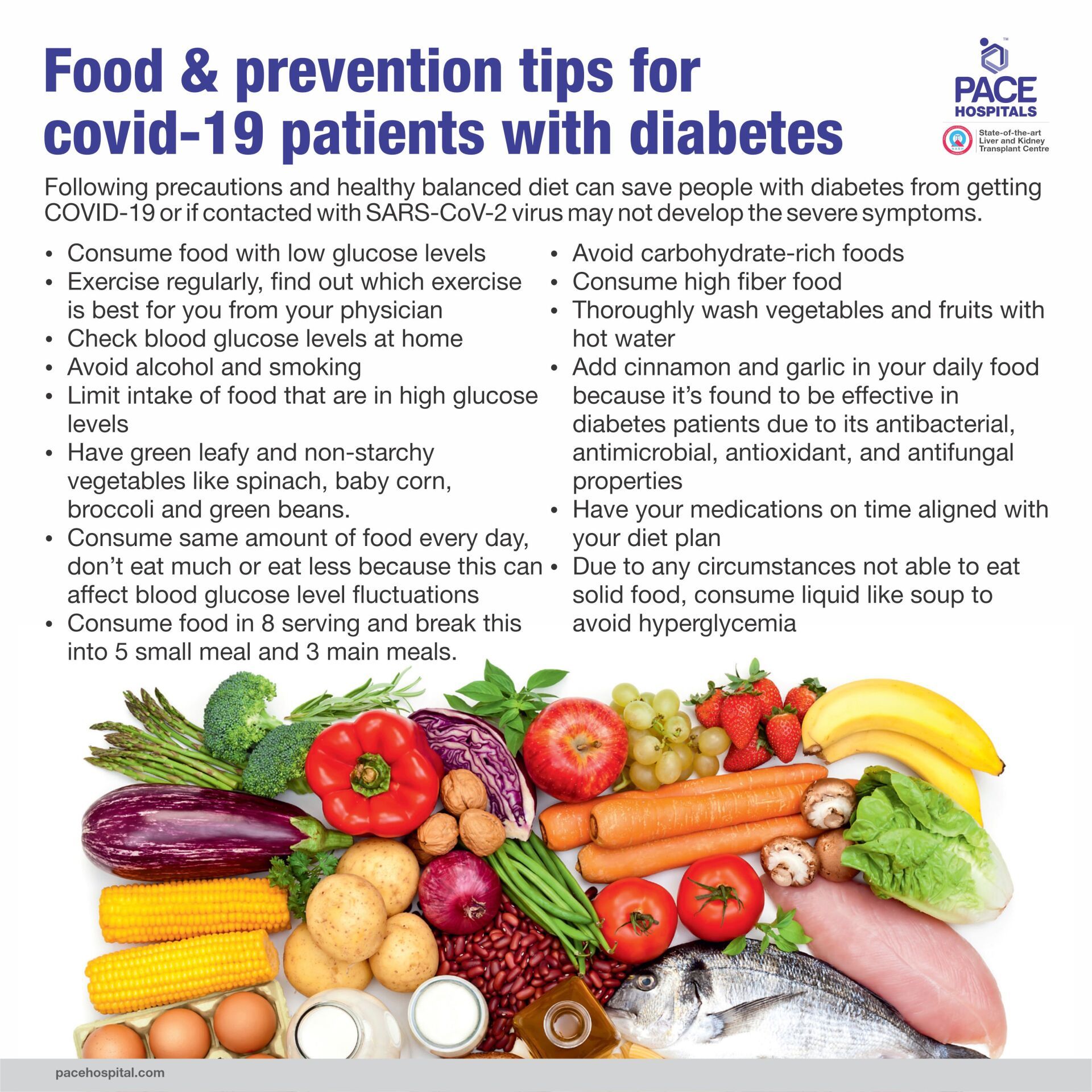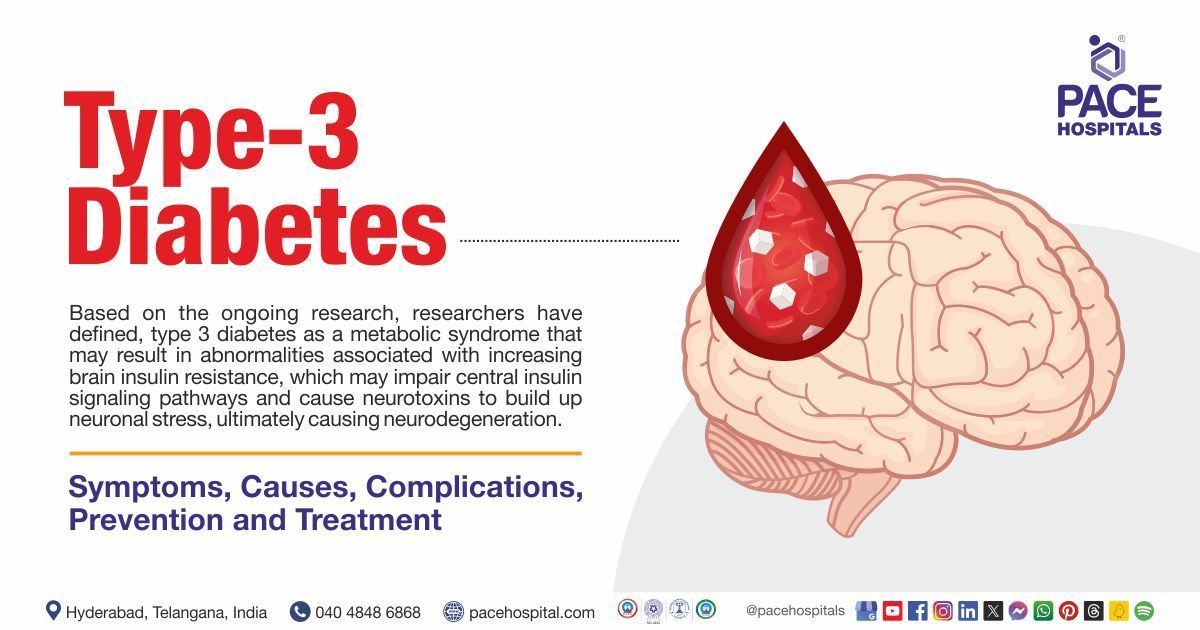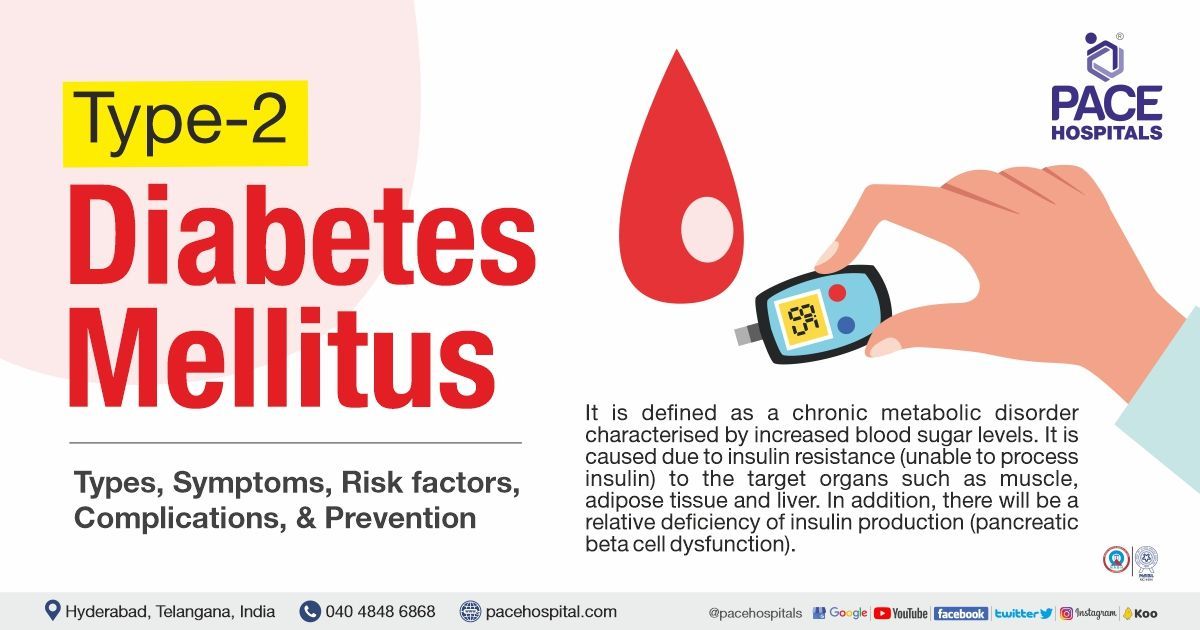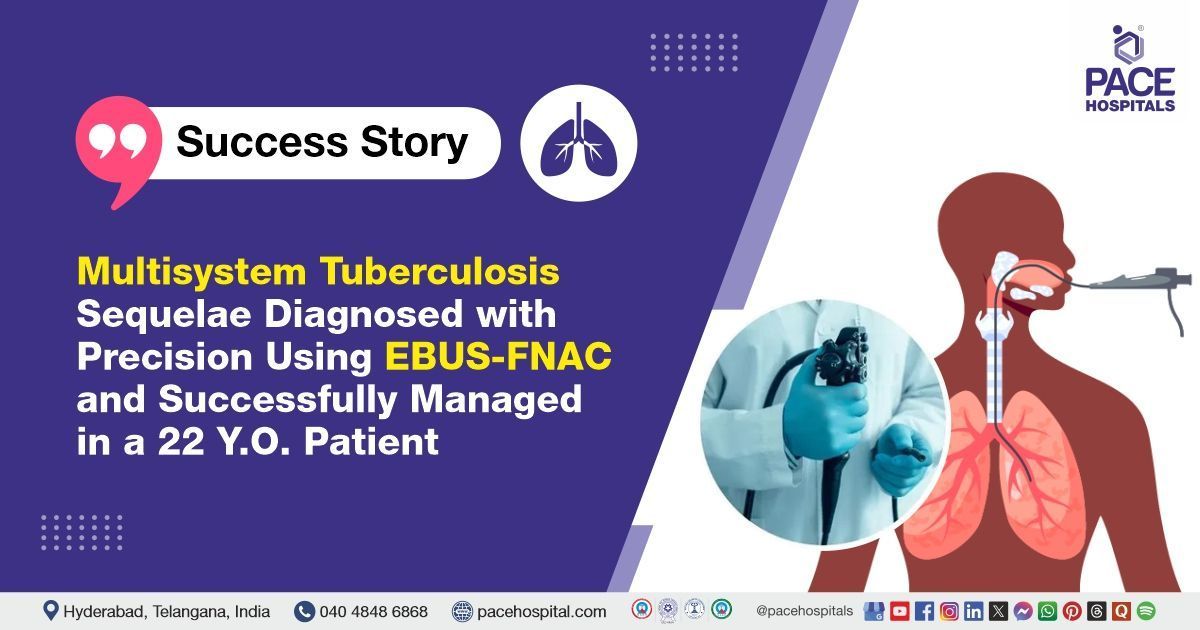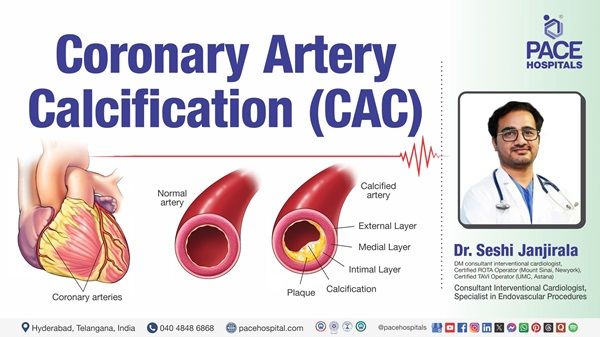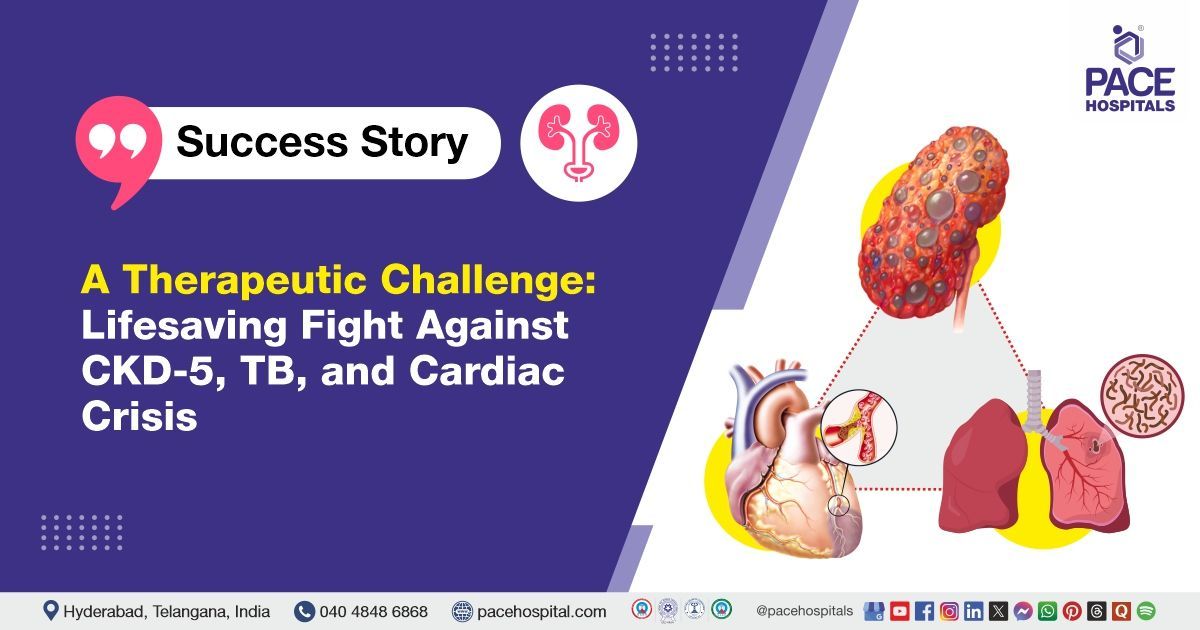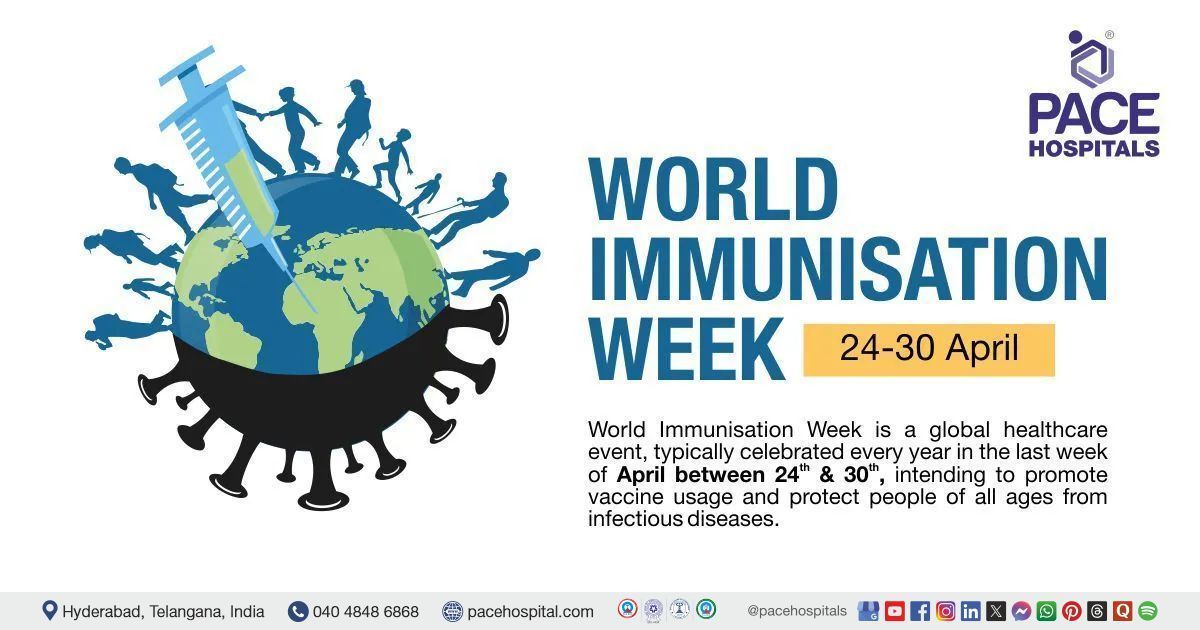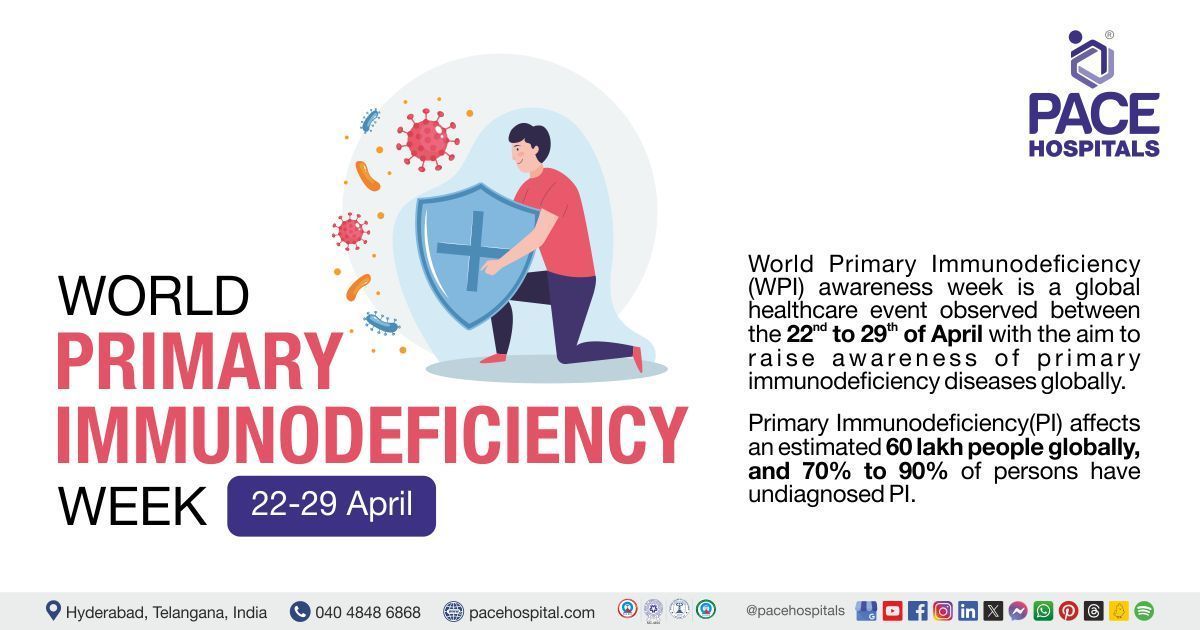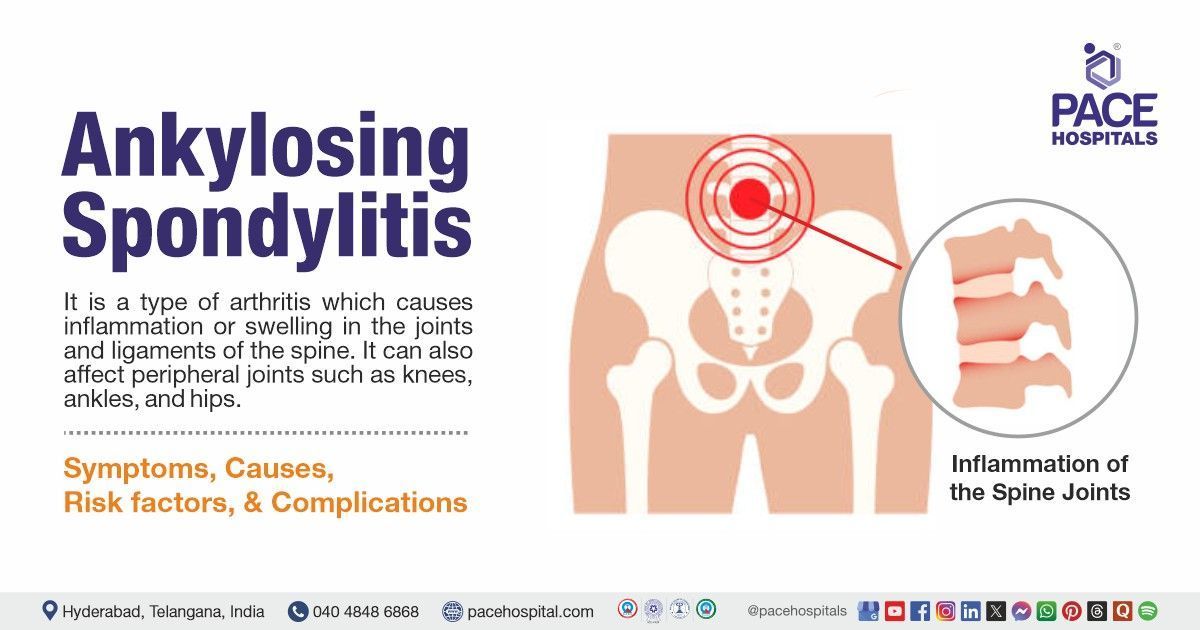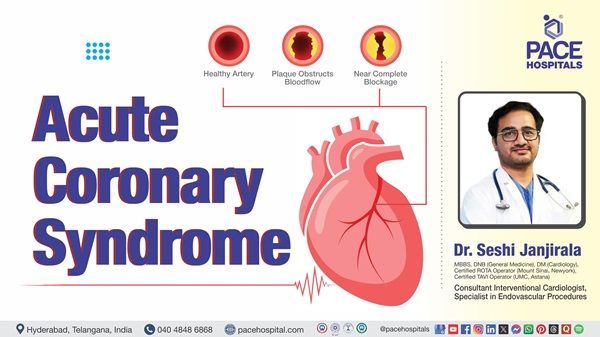Diabetes and COVID-19 - onset symptoms, long term effect and complications
Due to increased number of infected patients, we all are understanding conditions related to the person getting infected and developing coronavirus symptoms. Severe acute respiratory syndrome coronavirus 2 (SARS-CoV-2) have long term effect, serious health problems and can damage lungs, heart, brain, skin, blood vessels, kidneys and nerves.
It’s observed common cold or flu like symptoms such as cough, fever, breathing difficulties, muscle pain and tiredness; usually appear within 3-7 days average incubation period of exposure to the SARS-CoV-2 virus, but in some cases it has taken up to 10-14 days to experience symptoms. Elderly old people and people with co-morbidities like diabetes, heart disease and lung disease are at high risk of developing severity.
“Patients affected with SARS-CoV-2 can develop post covid complications. People those who are treated for COVID should closely monitor their health conditions till 6 months to make sure they are not developing any further complications”, Diabetologist said.
Can COVID-19 cause diabetes?
Coronavirus can cause inflammation, hormonal imbalance in the body, blood clots and other serious health conditions. Some of asymptomatic, mild, moderate or severely affected patients have elevated levels of blood sugar.
It’s possible these patients have prediabetes (when your blood sugar levels are higher but can’t be classified as diabetes) or preexisting condition before SARS-CoV-2 infection, due to steroid and insulin dependent treatment diabetes triggered. In these patients, COVID-19 can affect blood sugar levels that cause diabetes after covid recovery may remain for their lifetime.
It has been observed 25 to 30% patients those treated in hospital due to severe symptoms developed diabetes or high blood sugar level after COVID-19 recovery.
As per recent studies, coronavirus spike protein can cause damage to pancreas beta cells that is responsible to secrete insulin, due to cells damage pancreas is not able to maintain normal blood sugar levels and regulate glucose into the body's cells.
What are the warning signs of diabetes to look for during COVID-19 infection and post recovery?
Respiratory viral infection can elevate blood sugar level, these are the warning signs that may indicate that the person might have developed diabetes mellitus during COVID-19 infection or post recovery:
- Excessive, frequent urination and excessive thirst (diabetes insipidus)
- Blurry vision and loss of alertness
- Slow Healing of cuts and wounds
- Extreme fatigue
- Not able to regain the weight loss
Does diabetes put you at higher risk for COVID-19?
Diabetes patients may have compromised immune system that can affect body’s healing ability from a disease or infection and reduce the recovery time. Uncontrolled diabetes may have adverse effect on body and cause inflammation to the healthy cells resulting damage to bodily functions.
People with diabetes and those who are not having diabetes are at same risk of getting SARS-CoV-2 infection. Diabetes patients are more likely at higher risk of developing severe symptoms and high blood sugar level after COVID-19 when infected by coronavirus, based on current data.
Why coronavirus (COVID-19) is dangerous for diabetic patients?
Diabetes mellitus is a group of diseases occurs due to uncontrolled level of blood sugar in the body. Excess sugar in your blood can cause potential damage and lead to serious health problems.
Patients with diabetes already at risk of developing complications like nerve damage (neuropathy), kidney damage (nephropathy), eye damage (retinopathy), skin diseases, cardiovascular disease etc.
COVID-19 can affect blood sugar levels. Diabetes can increase risk of severe symptoms, complications and infections, including longer hospital stay or death among patients infected with Covid-19.
Due to uncontrolled sugar level in people with diabetes, viral infections can increase internal swelling or inflammation can lead to severe symptoms, complications and reinfection of coronavirus.
Can a diabetic patient recover from COVID-19?
Yes, a diabetic patient can recover from COVID-19. As per recent data, around 90% diabetic patients with controlled blood sugar level recovered without developing any severe complications and symptoms, those timely diagnosed and treated. Well controlled diabetes patients, those who are hospitalized recovered fast and tendency not develop any complications post covid recovery.
Diabetic patients with uncontrolled diabetes tend to develop severe symptoms whenever infected by any viral infections. These people may develop complications in the future, that's why It's important to watch regularly blood sugar levels and treat accordingly to avoid going into emergency situation.
How does COVID-19 affect type 1 or type 2 diabetes patients?
Type 1 and type 2 diabetes both are chronic disease, causing too high glucose level in your blood and people can develop severe long term complications. People affected with type 1 don’t produce enough insulin and in type 2 don’t respond to insulin or insulin resistance.
In the World, around 10% people affected with type 1 diabetes or juvenile diabetes and 90% people affected with type 2 diabetes. People those are having type 1 diabetes or type 2 diabetes or gestational diabetes are at risk of developing severe symptoms from COVID-19. People those already having health conditions affected by diabetes likely to present worst effect if contacted with SARS-CoV-2.
People those properly monitor and control the blood sugar level who are otherwise healthy may not develop severe outcome of COVID-19. That’s why it is important for them to control the sugar level and manage diabetes to avoid serious health complications.
Can COVID-19 increase risk of diabetic ketoacidosis in patients?
Diabetic ketoacidosis occur when body doesn’t produce enough insulin and for energy in the place of glucose, cells started burning fat that makes acid called as ketones. It can increase risk of sepsis, heart attack, infection, low potassium level, brain swelling, loss of consciousness resulting in coma state or sometimes death.
As per recent data it’s observed in some patients with diabetes or prediabetes conditions, COVID-19 accelerated diabetic ketoacidosis (DKA). Patients with type 1 diabetes or juvenile diabetes are at high risk of DKA.
Chemical imbalance due to diabetic ketoacidosis make it difficult in treating COVID-19 patients. They can develop septic shock, sepsis, severe complications or end up going into emergency situation.
Symptoms like extreme weakness, nausea, pain and abdominal discomfort, frequent urination, confusion or loss of alertness, discomfort in breathing, smells like fruit when breathing, feeling thirsty, dry mouth and skin simultaneously signs like high ketone level in urine and high blood sugar level after COVID-19; may indicate diabetic ketoacidosis. It’s advised to consult diabetes care team to manage these symptoms.
Can COVID-19 trigger new onset diabetes for long time?
As per increasing evidences, COVID-19 patients may develop new onset diabetes. It is becoming serious concern for those who are not diagnosed earlier with diabetes.
COVID-19 patients with diabetes are showing complication of new onset high blood sugar (hyperglycemia) and acute metabolic decompensation, mostly those who are hospitalized for treatment. New onset high blood sugar (hyperglycemia) not yet reported any association with other risk factors including diabetes, prediabetes and obesity.
Onset diabetes significantly observed in type 2 diabetes patients. This happens because they are on high dosage of IV insulin treatment due to insulin resistance.
New onset diabetes, commonly showing in severely infected patients with SARS-CoV-2 and in patients who are having Long COVID symptoms post recovery. Management of onset diabetes is very important to avoid long time effect.
Some situation like acute infection, prediabetes stage, steroid treatment, insulin induced treatment, insulin resistance, pancreas beta cells damage due to respiratory viral infection can cause new onset diabetes or stress diabetes or stress hyperglycemia (diabetes due to injury).
It’s also observed new onset high blood sugar level after COVID-19 reversed in the patients post recovery and doesn’t require insulin treatment.
How to prevent diabetes after COVID-19 recovery?
Due to acute illness, it’s possible the person might have lost significant weight. Goal to gain back old weight should be more focused on muscle not the lost the weight, idly person should focus on keeping BMI (body mass index) in between 23 and 25.
Daily walking, following healthy food habits that are rich in fiber, avoiding sugared beverages and less intake of sugar, avoiding smoking and alcohol are the most important things in a person post covid recovery.
People diagnosed with prediabetes during COVID-19 treatment should focus on diet and exercise plan advised by dietician and physician, this can lower down the risk of developing type 2 diabetes simultaneously may help in maintaining insulin sensitivity and healthy weight.
Post covid recovery, people both those are recovered while in home isolation and hospitalized for treatment should monitor blood sugar levels once in 3 months till 12 months, if there is no improvement consult a doctor to avoid going into emergency medical condition.
Why is it important to seek medical attention for diabetes?
Diabetes has several complications due to blood sugar level and chemical imbalance. It can cause damage to nerves and blood vessels that can further impact on eyes, kidneys, liver and heart.
Due to diabetes person can lose the sensations called as diabetic neuropathy, develop poor blood flow in legs and arms called as peripheral vascular disease; fungal infections such as mucormycosis, aspergillosis, yellow fungus etc.
Uncontrolled high blood sugar can cause fat accumulation in liver and its cells resulting fatty liver, and cause kidneys dysfunctions resulting protein loss in urine, diabetic nephropathy or chronic kidney disease.
People those who are experiencing high blood sugar or hyperglycemia after COVID-19 treatment is not normal. This indicates people already started developing complications. Hyperglycemia related to COVID-19 is a warning sign, and a person may develop type 2 diabetes after covid recovery in the near future. In this condition it’s very important to seek medical attention, diagnose it properly and taking care the onset symptoms on time might slow down the progression of hyperglycemia.
People should watch their symptoms and warning signs to delay the diabetes simultaneously certain lifestyle modifications might help is near future to avoid complications.
What all precautions diabetes patients should follow to prevent getting COVID-19?
These general precautions widely advised to all and very important for people with diabetes and close contacts of people with diabetes as well:
- Wear a mask whenever go to public place
- Follow hand hygiene, keep hand sanitizer always handy
- Avoid close contacts with people and maintain at least 6 ft. distance
- Disinfect and clean frequently touched surfaces
- If having any common cold or flu like symptoms stay at home, seek medical attention and take treatment on priority
People with diabetes should take extra care to themselves and follow preventive measures, apart from above precautions they should follow these as well:
- Monitor your blood glucose level to avoid complications due to high or low blood sugar level
- Stay hydrated and keep enough fluids supply
- Make sure to take medications on time and keep enough diabetes medicine to avoid out of supply
- Have a healthy food and take adequate sleep
- Exercise regularly
What is a preferable diet plan for COVID-19 patients with diabetes?
Good and healthy food habits are very important for people with diabetes. Balanced diet and healthy nutrition is essential to keep blood sugar levels stable simultaneously it also helps in enhancing immune system. These tips are advised:
- Consume food with low glucose levels
- Exercise regularly, find out which exercise is best for you from your physician
- Check blood glucose levels at home
- Avoid alcohol and smoking
- Limit intake of food that are in high glucose levels
- Have green leafy and non-starchy vegetables like spinach, baby corn, broccoli and green beans.
Following precautions and healthy balanced diet can save people with diabetes from getting COVID-19 or if contacted with SARS-CoV-2 virus may not develop the severe symptoms.
Diet plan is very important for the diabetes patients affected by COVID-19. Managing diabetes after covid recovery through proper diet plan can help them to recover fast and go back to their normal life. Apart from above recommendations, these are some food tips they must follow:
- Consume same amount of food every day, don’t eat much or eat less because this can affect blood glucose level fluctuations
- Consume food in 8 serving and break this into 5 small meal and 3 main meals.
- Avoid carbohydrate-rich foods
- Consume high fiber food
- Thoroughly wash vegetables and fruits with hot water
- Add cinnamon and garlic in your daily food because it’s found to be effective in diabetes patients due to its antibacterial, antimicrobial, antioxidant, and antifungal properties
- Have your medications on time aligned with your diet plan
- Due to any circumstances not able to eat solid food, consume liquid like soup to avoid hyperglycemia
If there is no improvement in high blood sugar level after COVID-19 and feeling discomfort, consult immediately.
Related Articles
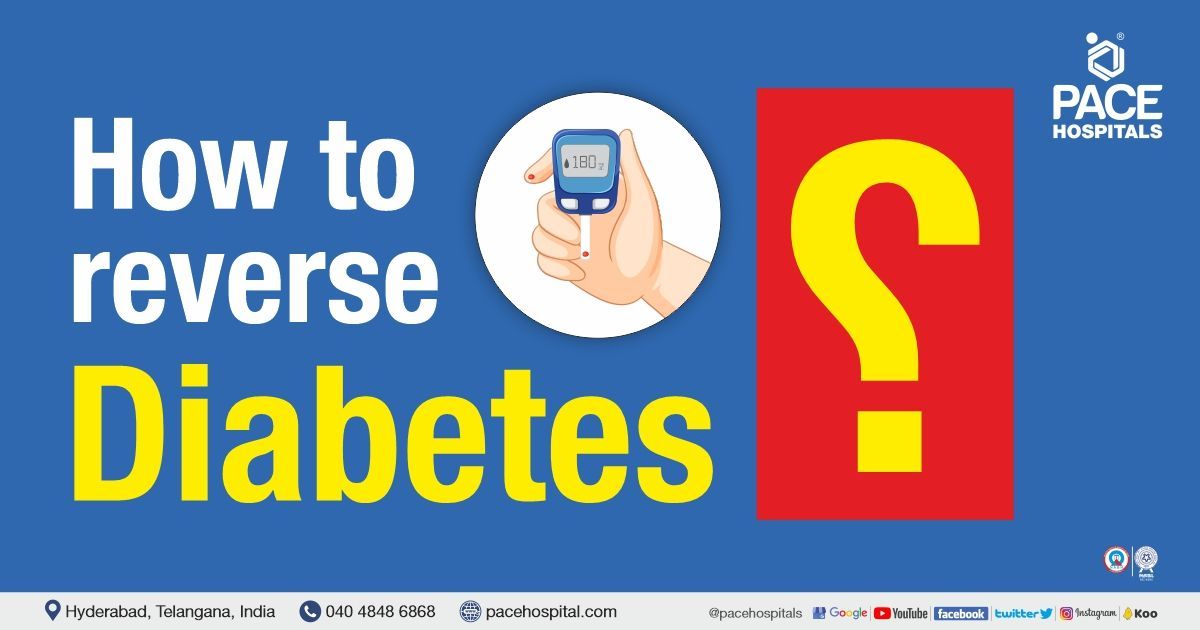
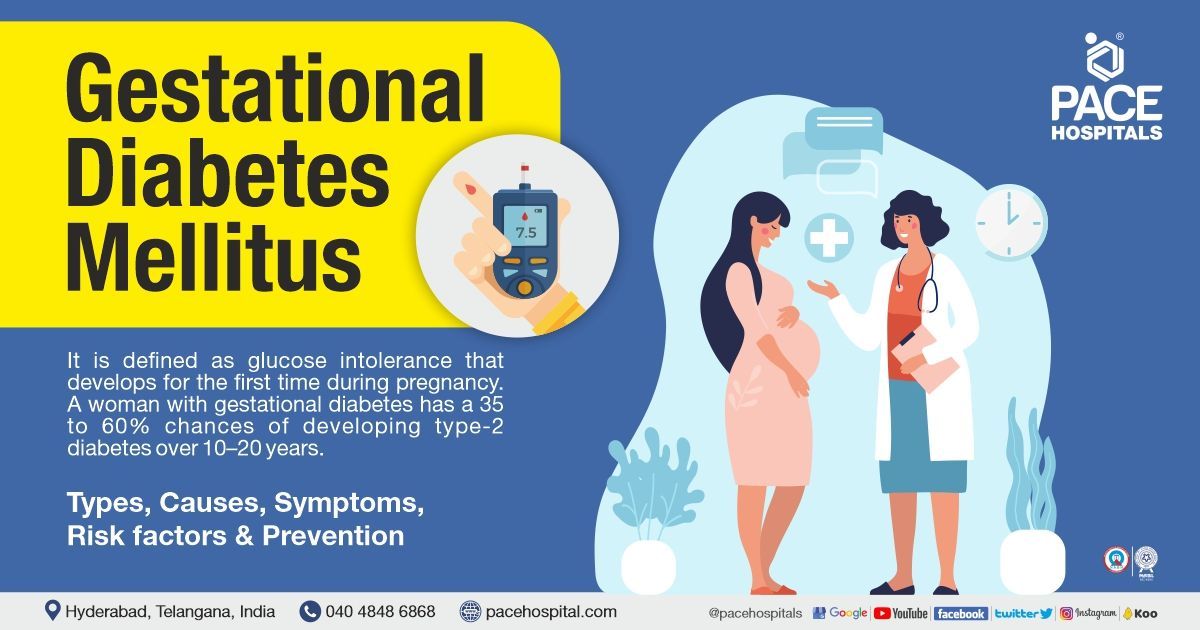
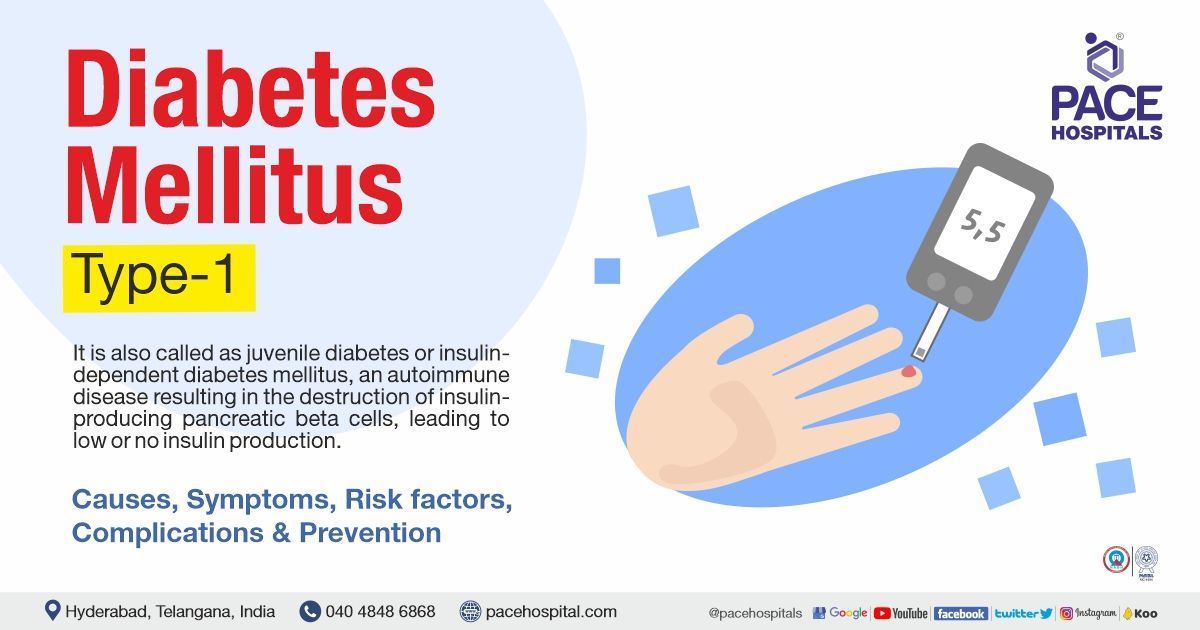
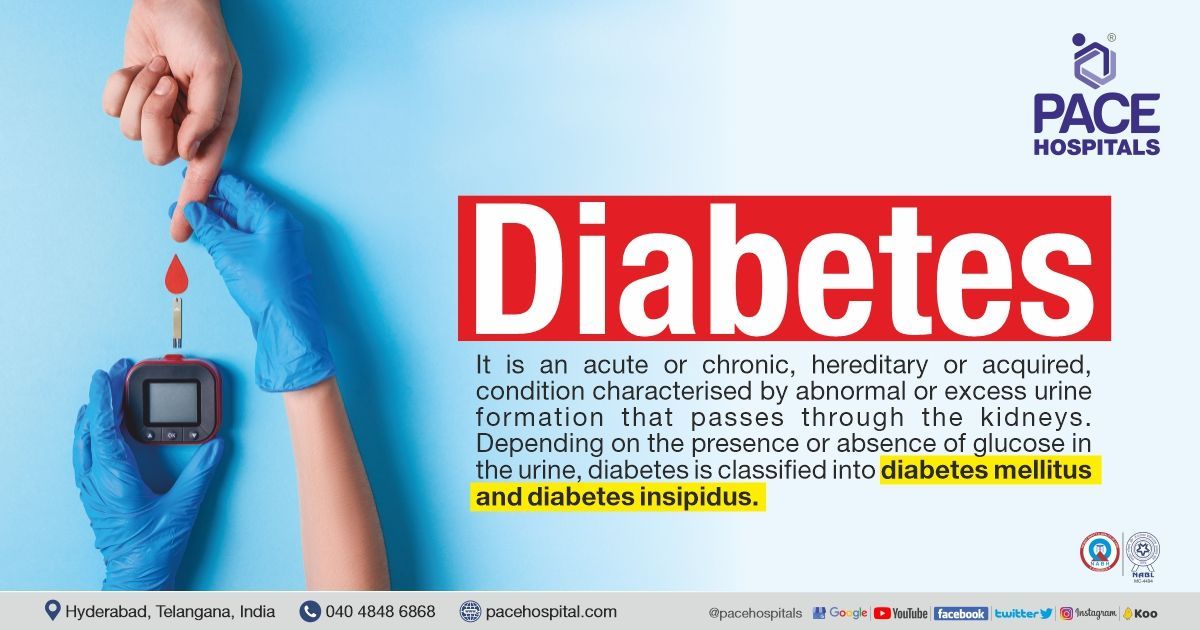
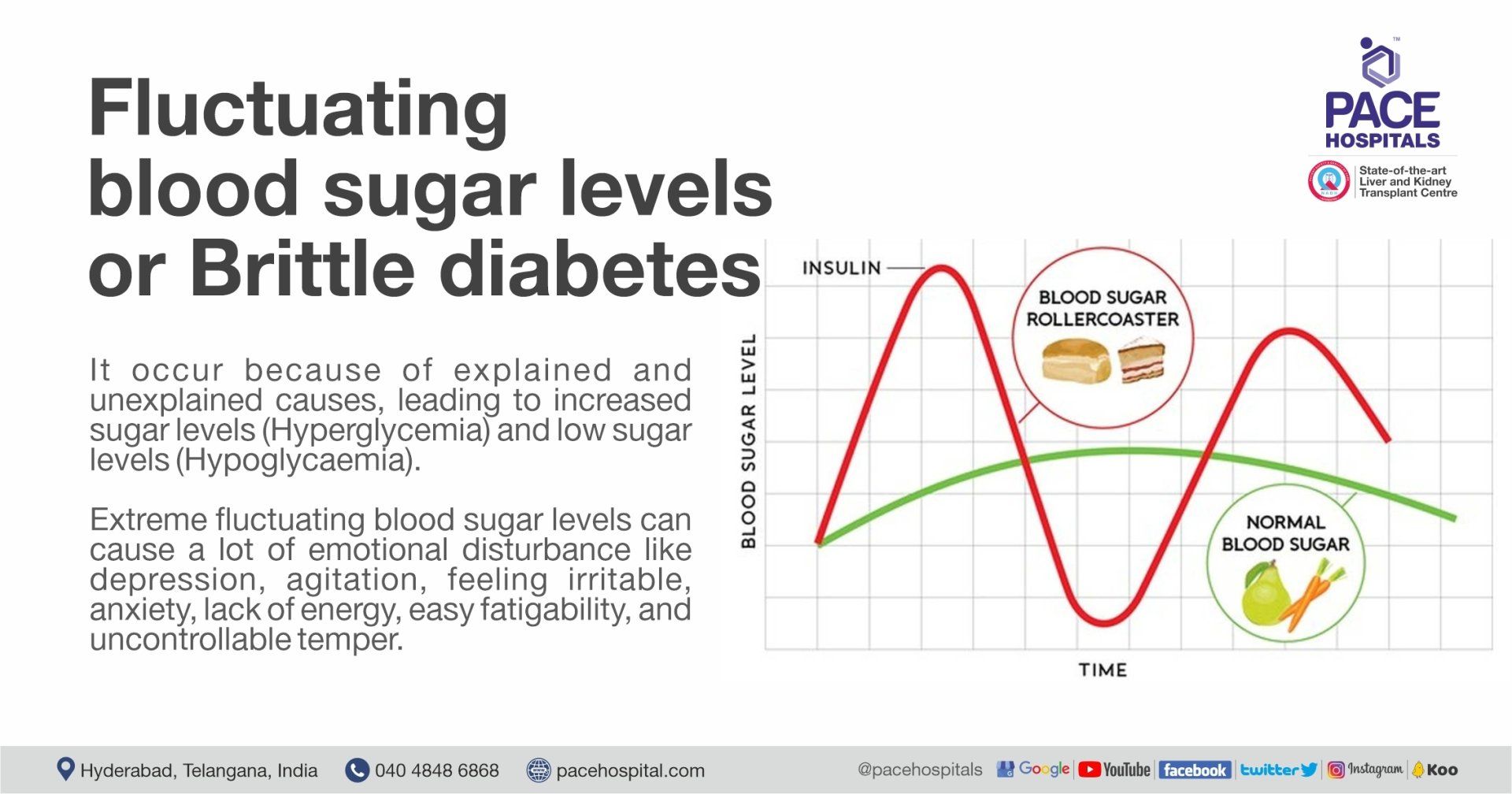
Share on
Request an appointment
Fill in the appointment form or call us instantly to book a confirmed appointment with our super specialist at 04048486868

